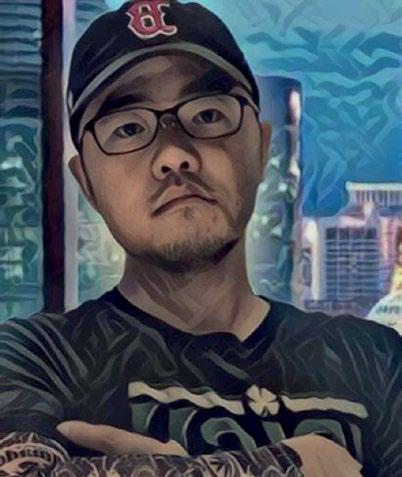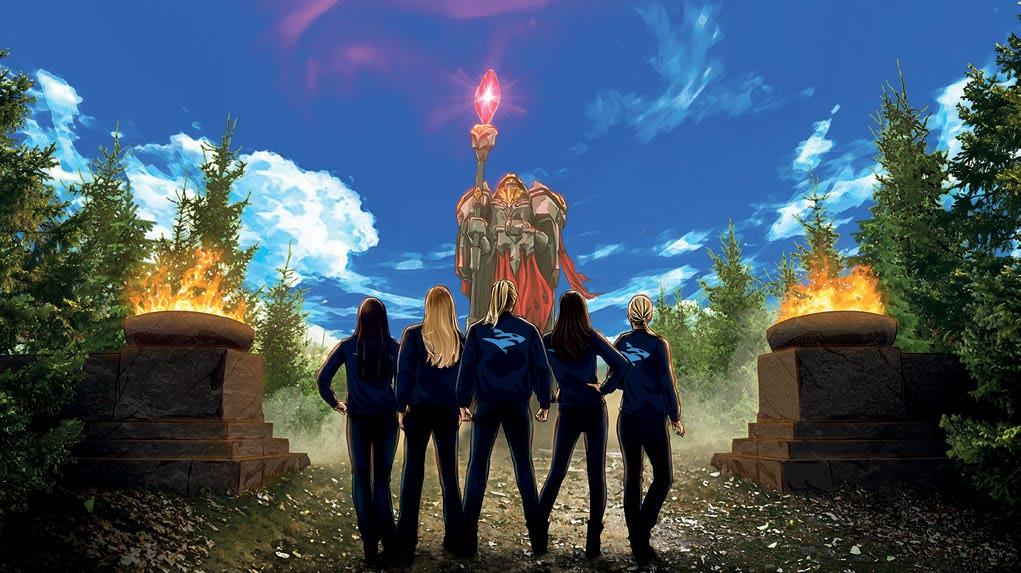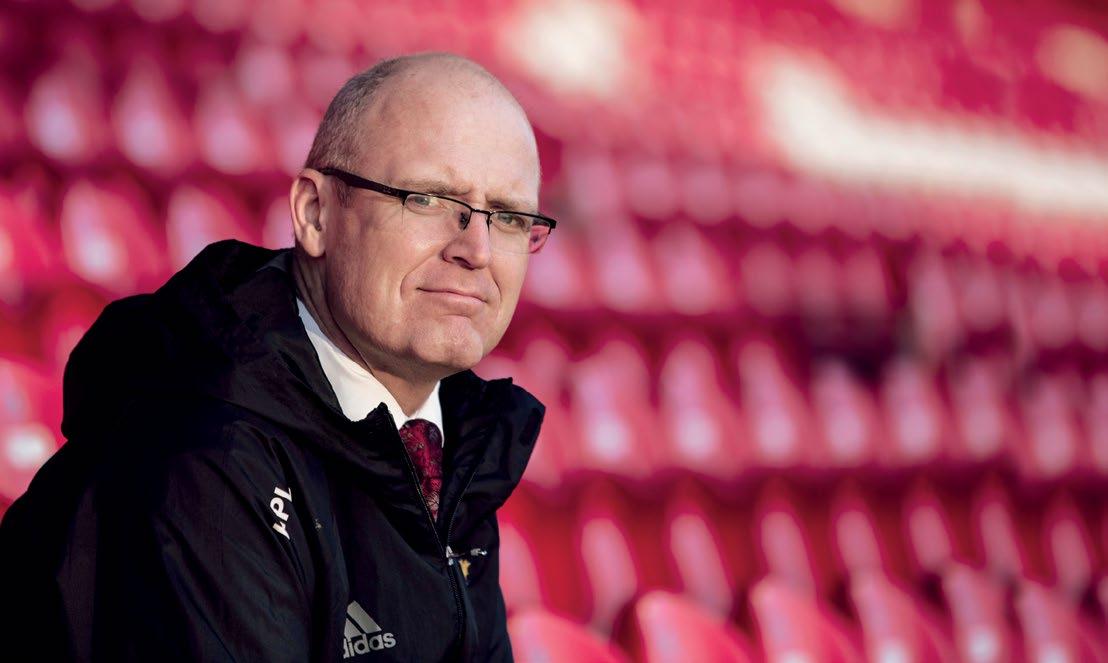
7 minute read
Edge
from The Esports Journal
by SBC Global
Why is paying gamers so hard? Paying your players is made easy with Edge
AUTHOR Andrew Hayward @ahaywa

s the esports industry expands and evolves, it is gradually becoming more and more professional -- but it still lives up to the disparaging “Wild West” moniker at times. Every so often, an organisation seemingly disappears into thin air with a trail of players claiming unpaid winnings or salaries, or players visibly run afoul of contract stipulations. A
That’s where Edge aims to fill a void. The esports startup employs automated smart contracts to ensure that all parties meet their obligations and receive their stakes, and that the whole process is as transparent and effortless as possible. “Edge is a data-driven payments platform,” explained co-founder and CEO Adam Whyte. “What we do is we make sure that every single gamer gets paid the prize money, salaries, and sponsorship fees they’re promised by tournament organisers and teams, and we help tournament organisers, publishers, and teams manage their contracts, payments, and data in one platform.”
Whyte worked as a sports lawyer between 2009 and 2015, with football clubs such as AS Roma, Manchester City and Sevilla FC, on matters such as contract negotiations, transfer agreements, and sponsorship agreements. He also argued about 25 total cases before the Court of Arbitration for Sport, FIFA’s Dispute Resolution Chamber, and the UEFA Disciplinary Committee.
He then moved to London and completed a Master’s degree in business and got deep into Blizzard Entertainment’s Hearthstone, logging some 30,000 matches and entering pro tournaments. However, he quickly realised that competing wasn’t his true calling in esports.
“I got tired of losing to people half my age and twice as good as me,” Whyte recalled, so he started helping
professional players instead. “I assisted a UK Hearthstone player in his contract negotiations. I realised that the contract he was going to sign was not a great one. As I onboarded more clients and more customers, I saw that across the entire industry, contractual stability and commercial certainty were nice-tohaves, not par for the course.”
Whyte’s initial efforts ultimately gave way to Edge, which he co-founded with chairman David Yarnton. As prize pools swell and more major brands sponsor events and teams, there will be less and less room for esports organisations to be lax about payments and contracts. That’s why Whyte believes that a platform like Edge is essential for esports going forward.
“When you have new industries, you always have volatility. Volatility results in commercial uncertainty and instability, and dilution of brand equity,” he said. “Brands right now want to know that the tournaments that they back and the players that they sponsor are ones that observe their contracts.”
“I think that the industry is not going to stop growing, especially in a postCOVID-19 era,” Whyte continued. “Relying on analogue processes is no longer a viable option because everyone is going digital. Even sending things via post in the mail is more difficult, so we believe that having a digital, data-driven solution for a digital, data-driven industry is the future of it, and there’s no reason that Edge can’t be applied to more industries in the future.”
That’s one side of what the Edge platform offers. The other is data. Edge works with publisher and social media APIs to present key, actionable insights, including aggregate statistics about tournament participants, as well as broadcast data directly from platforms like Twitch and TikTok. It can also monitor such platforms to ensure that contract obligations are being fulfilled.
Edge’s data storage platform uses immutable technology akin to blockchain, which means that all contract data is logged and permanent. That’s ideal for transparency’s sake, so when a prospective new partner comes calling for contract data, performance metrics, income and expenses, and more, a company on the Edge platform doesn’t have to scramble to pull all of that together.
“It’s an opportunity for a team to say: I’ve got all my shit together. I’ve got my documents in order,” Whyte said bluntly.
After rolling out a rebranding at the start of the year, Edge has big plans ahead. The company has been onboarding first customers, and in June will begin working with publishers and tournament organisers to manage player and talent contracts, and distribute prize money. And once things start rolling with esports clients, Whyte envisions the platform being useful across other industries, as well.
“After we help to end the Wild West of esports, we’ll be looking to other industries that want to optimise their payments infrastructure and collect more meaningful data on their users,” he concluded. “What Edge is really excited for in the future is being the interface between digital events and fiat payments.”
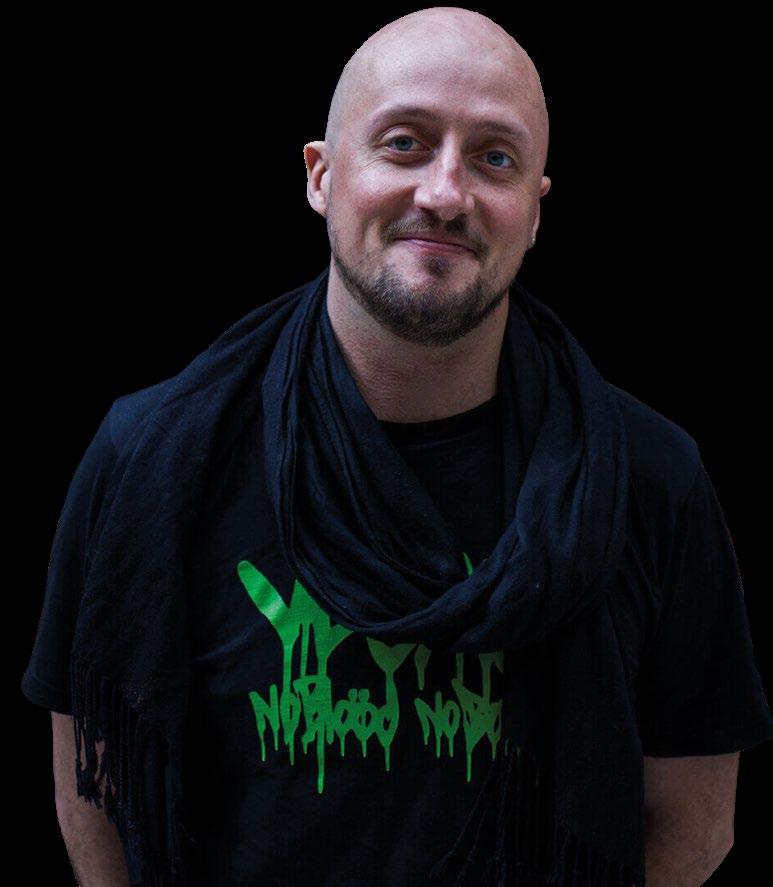
Adam Whyte CEO Edge
Critical Force Building grassroots mobile momentum
AUTHOR Andrew Hayward @ahaywa
hile mobile esports has a significant presence in Asian countries, it has continued to be a tough nut to crack in the West. We’ve seen companies pour considerable resources behind mobile esports efforts in Western countries, such as Tencent with Arena of Valor and Super Evil Megacorp with Vainglory, without enduring or expansive success. Only Supercell has continued investing on a large scale for titles such as Clash Royale and Clash of Clans. W
Critical Force is trying out a different kind of path. After inconsistent esports efforts in the past, the Finnish developer is building towards an esports future for mobile first-person shooter Critical Ops by starting small. While a future of splashy events and professional leagues is certainly a possibility, it’s a far-off one. For now, Critical Force hopes to nurture its competitive scene by empowering community groups and tournament organisers.
The mobile Android and iOS shooter has previously held officially-sanctioned online tournaments, and had an offline competition as part of an Amazon Mobile Masters event. After that, Critical Force partnered with Battlefy to operate its tournaments.


Watkins Lam Esports Manager Critical Force
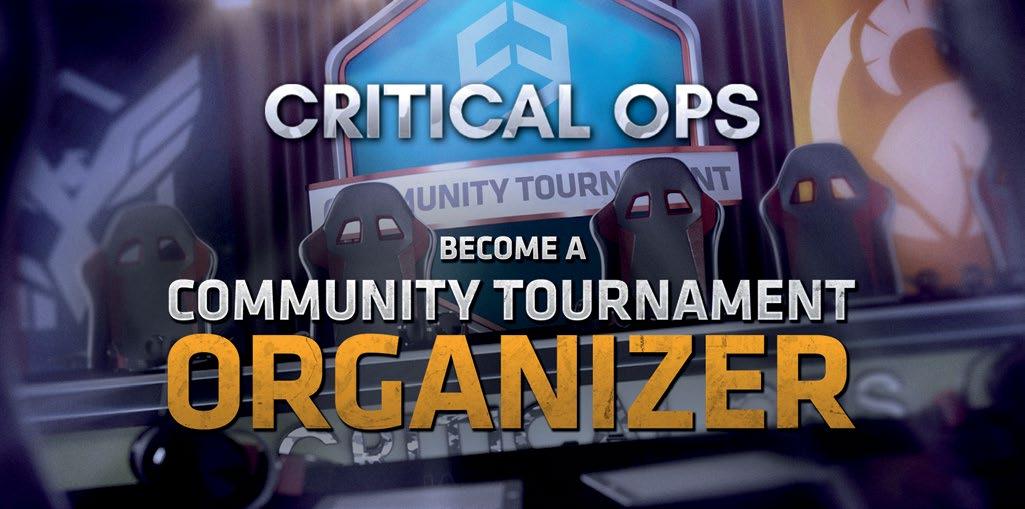
“Battlefy was able to really help us manage a lot more things, and at the same time, it was great because they were able to give us more data about how often the users would host and players would play,” explained Watkins “WattieX” Lam, Esports Manager and Senior Community Manager for Critical Force.
After about a year and a half without an esports push, due to the studio refocusing its efforts on in-game improvements, Lam has taken on the Esports Manager role to help guide the future of Critical Ops esports and better communicate the studio’s plans to the community. “Although Battlefy was great to have for our players, I believe that it’s more important for us to be even more connected with our players,” he added.
Right now, Critical Force is purely focused on building grassroots support before considering grander competitive ambitions. A new tournament organiser program will allow community TOs to host online tournaments promoted by Critical Force and backed by in-game credit prizing. Various improvements to Critical Ops’ competitive infrastructure will also help create smoother and more engaging tournament experiences, Lam said.
“We believe that these organisers are really the foundation of the competitive scene,” he affirmed. “I really feel that this is the first step of the foundation of making sure everything is going well, and that we can make sure to help them grow.”
Following that first step, Critical Force will launch a Critical Ops circuit composed of official tournaments that players can participate in. Lam said that the studio currently has plans to host two seasons of tournaments, each lasting a few months, and then will evaluate next steps after that. He said that the circuit won’t be considered a professional league, but that such a competitive structure could follow if there’s enough interest.
It’s quite a different approach compared to Supercell, which hosts multiple leagues with million-dollar prize pools and lavish events. However, Lam - who came out of the Critical Ops community as a fan himself - has witnessed the fates of past mobile esports games that have attempted big moves in the West and then faded away. He hopes that a small, centralised, and more gradual approach will help grow Critical Ops esports over time and eventually cement it as a sustainable competitive game.
“Not many people have done it and been able to grow esports to a certain level in mobile,” Lam recalled. “We’ve seen some other titles try, and they don’t have esports anymore, which is really unfortunate. There’s no right path yet on how esports will grow in the West, but I believe the things that we’re doing - very organic, grassroots kinds of things - really help to get players playing.”
“I don’t think anybody has the complete right format yet, but I think the steps that we’re taking are some good steps towards the development of mobile esports,” he added. “There’s just so much potential.”

